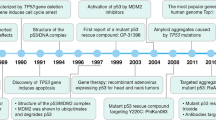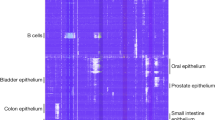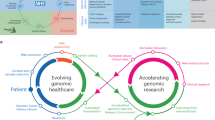Abstract
The importance of epigenetic aberrations in the pathogenesis of leukemias has been revealed by recurrent gene mutations that highlight epigenetic pathways as well as by the clinical success of therapies like 5-azacytidine and decitabine that work through epigenetic mechanisms. However, precise mechanisms of how gene mutations lead to leukemias and how epigenetic therapies induce clinical remissions are elusive. Current scientific inquiries that take advantage of techniques that can distinguish among the various covalent cytosine modifications at single base resolution are likely to shed light on the ways epigenetic pathways drive leukemogenesis as well as how the hypomethylating drugs induce clinical remissions. The hope is that these studies will also reveal which patients are likely to respond to epigenetic therapies. Thus, the future is likely to bring a new wave of diagnostic and prognostic tools that probe the epigenomics of leukemia to help clinicians in their management of patients.
This is a preview of subscription content, access via your institution
Access options
Subscribe to this journal
Receive 12 print issues and online access
$259.00 per year
only $21.58 per issue
Buy this article
- Purchase on Springer Link
- Instant access to full article PDF
Prices may be subject to local taxes which are calculated during checkout




Similar content being viewed by others
References
Plass C, Pfister SM, Lindroth AM, Bogatyrova O, Claus R, Lichter P . Mutations in regulators of the epigenome and their connections to global chromatin patterns in cancer. Nat Rev Genet 2013; 14: 765–780.
Helin K, Dhanak D . Chromatin proteins and modifications as drug targets. Nature 2013; 502: 480–488.
Lakshmikuttyamma A, Scott SA, DeCoteau JF, Geyer CR . Reexpression of epigenetically silenced AML tumor suppressor genes by SUV39H1 inhibition. Oncogene 2010; 29: 576–588.
Neff T, Armstrong SA . Recent progress toward epigenetic therapies: the example of mixed lineage leukemia. Blood 2013; 121: 4847–4853.
Ehrlich M, Gama-Sosa MA, Huang LH, Midgett RM, Kuo KC, McCune RA et al. Amount and distribution of 5-methylcytosine in human DNA from different types of tissues of cells. Nucleic Acids Res 1982; 10: 2709–2721.
Timp W, Feinberg AP . Cancer as a dysregulated epigenome allowing cellular growth advantage at the expense of the host. Nat Rev Cancer 2013; 13: 497–510.
Feinberg AP, Vogelstein B . Hypomethylation distinguishes genes of some human cancers from their normal counterparts. Nature 1983; 301: 89–92.
Estecio MR, Issa JP . Dissecting DNA hypermethylation in cancer. FEBS Lett 2011; 585: 2078–2086.
Irizarry RA, Ladd-Acosta C, Wen B, Wu Z, Montano C, Onyango P et al. The human colon cancer methylome shows similar hypo- and hypermethylation at conserved tissue-specific CpG island shores. Nat Genet 2009; 41: 178–186.
Cokus SJ, Feng S, Zhang X, Chen Z, Merriman B, Haudenschild CD et al. Shotgun bisulphite sequencing of the Arabidopsis genome reveals DNA methylation patterning. Nature 2008; 452: 215–219.
Lister R, Pelizzola M, Dowen RH, Hawkins RD, Hon G, Tonti-Filippini J et al. Human DNA methylomes at base resolution show widespread epigenomic differences. Nature 2009; 462: 315–322.
Bird A . DNA methylation patterns and epigenetic memory. Genes Dev 2002; 16: 6–21.
Wyatt MD . Advances in understanding the coupling of DNA base modifying enzymes to processes involving base excision repair. Adv Cancer Res 2013; 119: 63–106.
Teperek-Tkacz M, Pasque V, Gentsch G, Ferguson-Smith AC . Epigenetic reprogramming: is deamination key to active DNA demethylation? Reproduction 2011; 142: 621–632.
Lander ES, Linton LM, Birren B, Nusbaum C, Zody MC, Baldwin J et al. Initial sequencing and analysis of the human genome. Nature 2001; 409: 860–921.
Franchini DM, Schmitz KM, Petersen-Mahrt SK . 5-Methylcytosine DNA demethylation: more than losing a methyl group. Annu Rev Genet 2012; 46: 419–441.
Branco MR, Ficz G, Reik W . Uncovering the role of 5-hydroxymethylcytosine in the epigenome. Nat Rev Genet 2012; 13: 7–13.
Madzo J, Liu H, Rodriguez A, Vasanthakumar A, Sundaravel S, Caces DB et al. Hydroxymethylation at gene regulatory regions directs stem/early progenitor cell commitment during erythropoiesis. Cell Rep 2014; 6: 231–244.
Mariani CJ, Madzo J, Moen EL, Yesilkanal A, Godley LA . Alterations of 5-hydroxymethylcytosine in human cancers. Cancers (Basel) 2013; 5: 786–814.
Khalil AM, Guttman M, Huarte M, Garber M, Raj A, Rivea Morales D et al. Many human large intergenic noncoding RNAs associate with chromatin-modifying complexes and affect gene expression. Proc Natl Acad Sci USA 2009; 106: 11667–11672.
Schmitz KM, Mayer C, Postepska A, Grummt I . Interaction of noncoding RNA with the rDNA promoter mediates recruitment of DNMT3b and silencing of rRNA genes. Genes Dev 2010; 24: 2264–2269.
Garzon R, Liu S, Fabbri M, Liu Z, Heaphy CE, Callegari E et al. MicroRNA-29b induces global DNA hypomethylation and tumor suppressor gene reexpression in acute myeloid leukemia by targeting directly DNMT3A and 3B and indirectly DNMT1. Blood 2009; 113: 6411–6418.
Blum W, Garzon R, Klisovic RB, Schwind S, Walker A, Geyer S et al. Clinical response and miR-29b predictive significance in older AML patients treated with a 10-day schedule of decitabine. Proc Natl Acad Sci USA 2010; 107: 7473–7478.
Froberg JE, Yang L, Lee JT . Guided by RNAs: X-inactivation as a model for lncRNA function. J Mol Biol 2013; 425: 3698–3706.
Yildirim E, Kirby JE, Brown DE, Mercier FE, Sadreyev RI, Scadden DT et al. Xist RNA is a potent suppressor of hematologic cancer in mice. Cell 2013; 152: 727–742.
Li D, Feng J, Wu T, Wang Y, Sun Y, Ren J et al. Long intergenic noncoding RNA HOTAIR is overexpressed and regulates PTEN methylation in laryngeal squamous cell carcinoma. Am J Pathol 2013; 182: 64–70.
Lu L, Zhu G, Zhang C, Deng Q, Katsaros D, Mayne ST et al. Association of large noncoding RNA HOTAIR expression and its downstream intergenic CpG island methylation with survival in breast cancer. Breast Cancer Res Treat 2012; 136: 875–883.
Abdel-Wahab O, Gao J, Adli M, Dey A, Trimarchi T, Chung YR et al. Deletion of Asxl1 results in myelodysplasia and severe developmental defects in vivo. J Exp Med 2013; 210: 2641–2659.
Yamashita Y, Yuan J, Suetake I, Suzuki H, Ishikawa Y, Choi YL et al. Array-based genomic resequencing of human leukemia. Oncogene 2010; 29: 3723–3731.
Ley TJ, Ding L, Walter MJ, McLellan MD, Lamprecht T, Larson DE et al. DNMT3A mutations in acute myeloid leukemia. N Engl J Med 2010; 363: 2424–2433.
Yan XJ, Xu J, Gu ZH, Pan CM, Lu G, Shen Y et al. Exome sequencing identifies somatic mutations of DNA methyltransferase gene DNMT3A in acute monocytic leukemia. Nat Genet 2011; 43: 309–315.
Kim SJ, Zhao H, Hardikar S, Singh AK, Goodell MA, Chen T . A DNMT3A mutation common in AML exhibits dominant-negative effects in murine ES cells. Blood 2013; 122: 4086–4089.
Pawlak M, Jaenisch R . De novo DNA methylation by Dnmt3a and Dnmt3b is dispensable for nuclear reprogramming of somatic cells to a pluripotent state. Genes Dev 2011; 25: 1035–1040.
Green CL, Evans CM, Hills RK, Burnett AK, Linch DC, Gale RE . The prognostic significance of IDH1 mutations in younger adult patients with acute myeloid leukemia is dependent on FLT3/ITD status. Blood 2010; 116: 2779–2782.
Green CL, Evans CM, Zhao L, Hills RK, Burnett AK, Linch DC et al. The prognostic significance of IDH2 mutations in AML depends on the location of the mutation. Blood 2011; 118: 409–412.
Shen Y, Zhu YM, Fan X, Shi JY, Wang QR, Yan XJ et al. Gene mutation patterns and their prognostic impact in a cohort of 1185 patients with acute myeloid leukemia. Blood 2011; 118: 5593–5603.
Metzeler KH, Maharry K, Radmacher MD, Mrozek K, Margeson D, Becker H et al. TET2 mutations improve the new European LeukemiaNet risk classification of acute myeloid leukemia: a Cancer and Leukemia Group B study. J Clin Oncol 2011; 29: 1373–1381.
Patel JP, Gonen M, Figueroa ME, Fernandez H, Sun Z, Racevskis J et al. Prognostic relevance of integrated genetic profiling in acute myeloid leukemia. N Engl J Med 2012; 366: 1079–1089.
Figueroa ME, Abdel-Wahab O, Lu C, Ward PS, Patel J, Shih A et al. Leukemic IDH1 and IDH2 mutations result in a hypermethylation phenotype, disrupt TET2 function, and impair hematopoietic differentiation. Cancer Cell 2010; 18: 553–567.
Challen GA, Sun D, Jeong M, Luo M, Jelinek J, Berg JS et al. Dnmt3a is essential for hematopoietic stem cell differentiation. Nat Genet 2012; 44: 23–31.
Jeong M, Sun D, Luo M, Huang Y, Challen GA, Rodriguez B et al. Large conserved domains of low DNA methylation maintained by Dnmt3a. Nat Genet 2014; 46: 17–23.
Yu M, Hon GC, Szulwach KE, Song CX, Jin P, Ren B et al. Tet-assisted bisulfite sequencing of 5-hydroxymethylcytosine. Nat Protoc 2012; 7: 2159–2170.
Yu M, Hon GC, Szulwach KE, Song CX, Zhang L, Kim A et al. Base-resolution analysis of 5-hydroxymethylcytosine in the mammalian genome. Cell 2012; 149: 1368–1380.
Booth MJ, Branco MR, Ficz G, Oxley D, Krueger F, Reik W et al. Quantitative sequencing of 5-methylcytosine and 5-hydroxymethylcytosine at single-base resolution. Science 2012; 336: 934–937.
Booth MJ, Ost TW, Beraldi D, Bell NM, Branco MR, Reik W et al. Oxidative bisulfite sequencing of 5-methylcytosine and 5-hydroxymethylcytosine. Nat Protoc 2013; 8: 1841–1851.
Fenaux P, Mufti GJ, Hellstrom-Lindberg E, Santini V, Finelli C, Giagounidis A et al. Efficacy of azacitidine compared with that of conventional care regimens in the treatment of higher-risk myelodysplastic syndromes: a randomised, open-label, phase III study. Lancet Oncol 2009; 10: 223–232.
Silverman LR, Demakos EP, Peterson BL, Kornblith AB, Holland JC, Odchimar-Reissig R et al. Randomized controlled trial of azacitidine in patients with the myelodysplastic syndrome: a study of the cancer and leukemia group B. J Clin Oncol 2002; 20: 2429–2440.
Kantarjian H, Issa JP, Rosenfeld CS, Bennett JM, Albitar M, DiPersio J et al. Decitabine improves patient outcomes in myelodysplastic syndromes: results of a phase III randomized study. Cancer 2006; 106: 1794–1803.
Gurion R, Vidal L, Gafter-Gvili A, Belnik Y, Yeshurun M, Raanani P et al. 5-Azacitidine prolongs overall survival in patients with myelodysplastic syndrome—a systematic review and meta-analysis. Haematologica 2010; 95: 303–310.
Hubeek I, Stam RW, Peters GJ, Broekhuizen R, Meijerink JP, van Wering ER et al. The human equilibrative nucleoside transporter 1 mediates in vitro cytarabine sensitivity in childhood acute myeloid leukaemia. Br J Cancer 2005; 93: 1388–1394.
Huang Y, Anderle P, Bussey KJ, Barbacioru C, Shankavaram U, Dai Z et al. Membrane transporters and channels: role of the transportome in cancer chemosensitivity and chemoresistance. Cancer Res 2004; 64: 4294–4301.
Mahfouz RZ, Jankowska A, Ebrahem Q, Gu X, Visconte V, Tabarroki A et al. Increased CDA expression/activity in males contributes to decreased cytidine analog half-life and likely contributes to worse outcomes with 5-azacytidine or decitabine therapy. Clin Cancer Res 2013; 19: 938–948.
Jones PA, Taylor SM . Cellular differentiation, cytidine analogs and DNA methylation. Cell 1980; 20: 85–93.
Li LH, Olin EJ, Buskirk HH, Reineke LM . Cytotoxicity and mode of action of 5-azacytidine on L1210 leukemia. Cancer Res 1970; 30: 2760–2769.
Flatau E, Gonzales FA, Michalowsky LA, Jones PA . DNA methylation in 5-aza-2'-deoxycytidine-resistant variants of C3H 10T1/2 C18 cells. Mol Cell Biol 1984; 4: 2098–2102.
Santi DV, Norment A, Garrett CE . Covalent bond formation between a DNA-cytosine methyltransferase and DNA containing 5-azacytosine. Proc Natl Acad Sci USA 1984; 81: 6993–6997.
Datta J, Ghoshal K, Motiwala T, Jacob ST . Novel insights into the molecular mechanism of action of DNA hypomethylating agents: role of protein kinase C delta in decitabine-induced degradation of DNA methyltransferase 1. Genes Cancer 2012; 3: 71–81.
Taylor SM, Jones PA . Multiple new phenotypes induced in 10T1/2 and 3T3 cells treated with 5-azacytidine. Cell 1979; 17: 771–779.
Yang AS, Doshi KD, Choi SW, Mason JB, Mannari RK, Gharybian V et al. DNA methylation changes after 5-aza-2'-deoxycytidine therapy in patients with leukemia. Cancer Res 2006; 66: 5495–5503.
Daskalakis M, Nguyen TT, Nguyen C, Guldberg P, Kohler G, Wijermans P et al. Demethylation of a hypermethylated P15/INK4B gene in patients with myelodysplastic syndrome by 5-Aza-2'-deoxycytidine (decitabine) treatment. Blood 2002; 100: 2957–2964.
Stresemann C, Bokelmann I, Mahlknecht U, Lyko F . Azacytidine causes complex DNA methylation responses in myeloid leukemia. Mol Cancer Ther 2008; 7: 2998–3005.
Stresemann C, Lyko F . Modes of action of the DNA methyltransferase inhibitors azacytidine and decitabine. J Int Cancer 2008; 123: 8–13.
Fandy TE, Herman JG, Kerns P, Jiemjit A, Sugar EA, Choi SH et al. Early epigenetic changes and DNA damage do not predict clinical response in an overlapping schedule of 5-azacytidine and entinostat in patients with myeloid malignancies. Blood 2009; 114: 2764–2773.
Claus R, Pfeifer D, Almstedt M, Zucknick M, Hackanson B, Plass C et al. Decitabine induces very early in vivo DNA methylation changes in blasts from patients with acute myeloid leukemia. Leukemia Res 2013; 37: 190–196.
Klco JM, Spencer DH, Lamprecht TL, Sarkaria SM, Wylie T, Magrini V et al. Genomic impact of transient low-dose decitabine treatment on primary AML cells. Blood 2013; 121: 1633–1643.
Oki Y, Jelinek J, Shen L, Kantarjian HM, Issa JP . Induction of hypomethylation and molecular response after decitabine therapy in patients with chronic myelomonocytic leukemia. Blood 2008; 111: 2382–2384.
Suzuki H, Maruyama R, Yamamoto E, Kai M . DNA methylation and microRNA dysregulation in cancer. Mol Oncol 2012; 6: 567–578.
Baer C, Claus R, Plass C . Genome-wide epigenetic regulation of miRNAs in cancer. Cancer Res 2013; 73: 473–477.
Hollenbach PW, Nguyen AN, Brady H, Williams M, Ning Y, Richard N et al. A comparison of azacitidine and decitabine activities in acute myeloid leukemia cell lines. PLoS One 2010; 5: e9001.
Lu LW, Chiang GH, Medina D, Randerath K . Drug effects on nucleic acid modification. I. A specific effect of 5-azacytidine on mammalian transfer RNA methylation in vivo. Biochem Biophys Res Commun 1976; 68: 1094–1101.
Lu LJ, Randerath K . Effects of 5-azacytidine on transfer RNA methyltransferases. Cancer Res 1979; 39: 940–949.
Schaefer M, Hagemann S, Hanna K, Lyko F . Azacytidine inhibits RNA methylation at DNMT2 target sites in human cancer cell lines. Cancer Res 2009; 69: 8127–8132.
Xu J, Wang YY, Dai YJ, Zhang W, Zhang WN, Xiong SM et al. DNMT3A Arg882 mutation drives chronic myelomonocytic leukemia through disturbing gene expression/DNA methylation in hematopoietic cells. Proc Natl Acad Sci USA 2014; 111: 2620–2625.
Moran-Crusio K, Reavie L, Shih A, Abdel-Wahab O, Ndiaye-Lobry D, Lobry C et al. Tet2 loss leads to increased hematopoietic stem cell self-renewal and myeloid transformation. Cancer Cell 2011; 20: 11–24.
Quivoron C, Couronne L, Della Valle V, Lopez CK, Plo I, Wagner-Ballon O et al. TET2 inactivation results in pleiotropic hematopoietic abnormalities in mouse and is a recurrent event during human lymphomagenesis. Cancer Cell 2011; 20: 25–38.
Ko M, Bandukwala HS, An J, Lamperti ED, Thompson EC, Hastie R et al. Ten-Eleven-Translocation 2 (TET2) negatively regulates homeostasis and differentiation of hematopoietic stem cells in mice. Proc Natl Acad Sci USA 2011; 108: 14566–14571.
Li Z, Cai X, Cai CL, Wang J, Zhang W, Petersen BE et al. Deletion of Tet2 in mice leads to dysregulated hematopoietic stem cells and subsequent development of myeloid malignancies. Blood 2011; 118: 4509–4518.
Shide K, Kameda T, Shimoda H, Yamaji T, Abe H, Kamiunten A et al. TET2 is essential for survival and hematopoietic stem cell homeostasis. Leukemia 2012; 26: 2216–2223.
Dawlaty MM, Breiling A, Le T, Raddatz G, Barrasa MI, Cheng AW et al. Combined deficiency of Tet1 and Tet2 causes epigenetic abnormalities but is compatible with postnatal development. Dev Cell 2013; 24: 310–323.
Muto T, Sashida G, Oshima M, Wendt GR, Mochizuki-Kashio M, Nagata Y et al. Concurrent loss of Ezh2 and Tet2 cooperates in the pathogenesis of myelodysplastic disorders. J Exp Med 2013; 210: 2627–2639.
Sasaki M, Knobbe CB, Munger JC, Lind EF, Brenner D, Brustle A et al. IDH1(R132H) mutation increases murine haematopoietic progenitors and alters epigenetics. Nature 2012; 488: 656–659.
Chaturvedi A, Araujo Cruz MM, Jyotsana N, Sharma A, Yun H, Gorlich K et al. Mutant IDH1 promotes leukemogenesis in vivo and can be specifically targeted in human AML. Blood 2013; 122: 2877–2887.
Chen C, Liu Y, Lu C, Cross JR, JPt Morris, Shroff AS et al. Cancer-associated IDH2 mutants drive an acute myeloid leukemia that is susceptible to Brd4 inhibition. Genes Dev 2013; 27: 1974–1985.
Mylonas E, Janin M, Bawa O, Opolon P, David M, Quivoron C et al. Isocitrate dehydrogenase (IDH)2 R140Q mutation induces myeloid and lymphoid neoplasms in mice. Leukemia 2014; e-pub ahead of print 14 January 2014; doi:10.1038/leu.2014.18.
Author information
Authors and Affiliations
Corresponding author
Ethics declarations
Competing interests
The authors declare no conflict of interest.
Rights and permissions
About this article
Cite this article
Jasielec, J., Saloura, V. & Godley, L. The mechanistic role of DNA methylation in myeloid leukemogenesis. Leukemia 28, 1765–1773 (2014). https://doi.org/10.1038/leu.2014.163
Received:
Revised:
Accepted:
Published:
Issue Date:
DOI: https://doi.org/10.1038/leu.2014.163
This article is cited by
-
Deciphering molecular heterogeneity in pediatric AML using a cancer vs. normal transcriptomic approach
Pediatric Research (2021)
-
Identification of long non-coding RNA competing interactions and biological pathways associated with prognosis in pediatric and adolescent cytogenetically normal acute myeloid leukemia
Cancer Cell International (2018)
-
Hypomethylating Agents as a Therapy for AML
Current Hematologic Malignancy Reports (2017)
-
Quantitative detection of DNMT3A R882H mutation in acute myeloid leukemia
Journal of Experimental & Clinical Cancer Research (2015)



